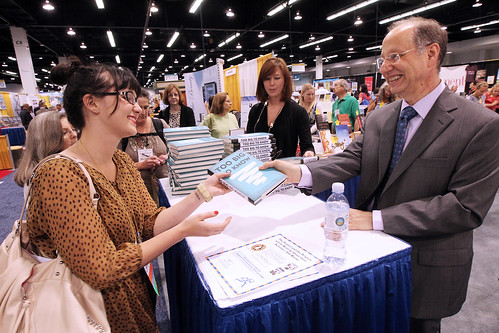Meister Eckhart (AKA Johannes Eckhart, AKA Eckhart von Hochheim) was a teacher, preacher, mystic, and member of the Dominican order of friars.
Much of the focus of his available works is on the uniting of the human soul with God. He believed that within the souls of all people lies a "little spark" of the divine, and ultimate bliss occurs in the realization of uniting (or perhaps reuniting) the soul with its creator.
Though certainly not the only thinker to do this, Eckhart interestingly dealt with his work in both the Latin of academics and scholars and the Middle High German of the laity, as he inhabited both spheres himself.
He was tried as a heretic and, though he retracted all his "false teaching" and made a declaration of orthodoxy, Pope John XXVII excommunicated him in 1329 (which may or may not have been posthumously). His works only really survived within small monastic communities and through references in the sermons of others.
What you should read:
- The German Sermons (I've only read a couple, but they are quite good)
- Sister Catherine
- The Sister Catherine treatise was apparently not actually written by Eckhart, but by a disciple of his and circulated under his name. However, I still feel that it is appropriate to include it among "his" works, because it does display his thinking and it has traditionally been associated with his corpus of work.
Ratings:
(To read more about my Theologian Rating System, click HERE)
Gender Equality:



The "Sister Catherine" dialogue exhibits a great deal of support for women's spirituality and female autonomy. The piece describes a woman speaking with a priest, and ultimately shows the woman to have a better grasp of the truth of God than the priest and she ends up teaching him.
Environmental Sensibility:




Eckhart believed in a certain level of pantheism, asserting that all creation is immanent in God, perhaps stemming from a kind of Platonic thought. Therefore, he had a high regard for nature, animals, and the environment.
Heretical Tendencies:




Eckhart's mysticism has gotten him in a lot of trouble with a lot of people throughout the centuries. His work and thought--especially the "Sister Catherine" treatise--has been associated with the Brethren of the Free Spirit (though whether it is antinomian in nature is debatable). His pantheism is also not seen as orthodox. And, you know, he was excommunicated.
General Badassery:

Though radical in many ideas, as a whole his life seems to be fairly nondescript.
Lastly, a (fairly well-known, I think) quote:
“If the only prayer you say in your life is thank you, that would suffice.”







